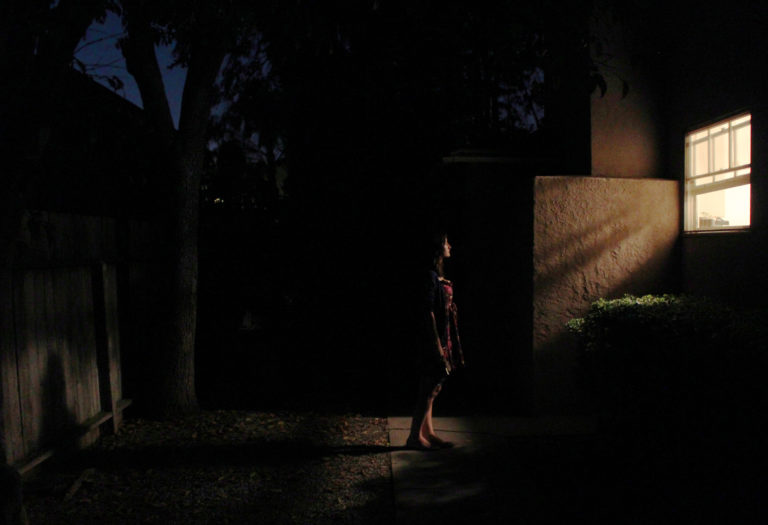Four and a Half Minutes of Silence
We are profoundly disappointed that the killer of our child will not face the consequence of his actions. While we understand that many others share our pain, we ask that you channel your frustration in ways that will make a positive change. We need to work together to fix the system that allowed this to happen. Join with us in our campaign to ensure that every police officer working the streets in this country wears a body camera. We respectfully ask that you please keep your protests peaceful. Answering violence with violence is not the appropriate reaction. Let’s not just make noise, let’s make a difference.
—The Brown family
I learned the news that a grand jury did not indict Ferguson, Mo., police officer Darren Wilson for any crimes related to the death of 18-year-old Michael Brown while in residency at a high school, absolutely surrounded by teenagers right around Mike’s age when he died.
The United World College-USA, as it’s known, is not a typical high school; there are 225 students from nearly 80 countries living and learning in the red-orange desert of New Mexico. It’s part of a network of 14 such high schools throughout the world, founded in 1962 with the vision of “offering an educational experience based on shared learning, collaboration, and understanding so that the students would act as champions of peace.”
Indeed they do. At the school assembly the morning after the verdict, two students stood in front of their classmates and tried to put words around the disappointment they felt knowing that Officer Wilson had escaped any responsibility. (In fact, unconscionably, he would go on television that very night and say that the incident didn’t “haunt” him, that he would do nothing differently.)
The students’ voices shook as they asked their fellow classmates to join them in four and a half minutes of silence, symbolizing the four and a half hours that Mike Brown’s body lay in the street. A silence as thick as heavy snow fell over the auditorium immediately.
I’ve been eating in the cafeteria with these 225 students for a week, so I am fully aware of how exuberant (read: loud) they can be. They strut in with their chaotic print leggings and their intentionally messy hair and hug one another performatively. They pile their plates high with Spanish rice and cold scrambled eggs and fill their cups with chocolate milk. They linger just inside the dining room, balancing their compulsively composed meals precariously, and make a frantic decision about whom they will sit with. They are like other teenagers I’ve met, although the slang that spills from their mouths is in a variety of languages.
Which is part of why their silence was so stunning. Four and half epic minutes of 225 humans sitting thigh to thigh, looking down at their Converse shoes, looking up into the corners of the auditorium, letting themselves feel. Simply feel. The preposterousness of it. The outrage of it. The grief of it.
It was this last one that I was most struck by. Grief, particularly the chronic kind — the kind that affects the community that loses a child, not the parent who loses a child — can be too quiet. It cowers into corners of our bodies when confronted with the loudness of our anger. Sometimes it’s reabsorbed, unnoticed, dishonored by a rush to strategy, an addiction to resolution that will never actually resolve.
But this time, on this sacred day, November 25, 2014, at 11:34 am MST in Montezuma, New Mexico, 225 kids resisted the impulse to organize their grief and instead sat with it. The fact that they originated from so many far-flung places made the moment even more textured, even less political. They were silent for one boy, from one town, but, no doubt, they were silent for so many boys, for so many girls, teenagers who could have been them that were no longer yelling in cafeterias and drinking chocolate milk and dreaming impossible dreams. They were silent for teenagers whom they had known or not known. They were silent for themselves — for the reality that they are growing up in a world that terrorizes some humans while letting others slip out of consequences.
They grieved because, as Martin Luther King taught us, “injustice anywhere is a threat to justice everywhere.” They grieved because the world is so ugly, because the revolution is unfinished, because a family goes to bed tonight, and has since August, with a 289-pound hole in their hearts.
This profound, young sadness was so beautifully expressed with that uncommon silence.
There is a role for anger, don’t get me wrong. I’m pissed as hell. I can’t even talk about this verdict with people that don’t share my worldview at this point. I hope that changes as I’m able to process my own outrage, but right now I feel the violence bubbling up from within me when I try to “discuss” what’s gone down in Ferguson. I’m too angry for dispassionate words.
The action that grows from the fertile soil of grief is far more effective than that which springs from the hothead of anger. The students, so young and otherwise grappling for wisdom, know that. I’m devastated and I’m following their lead.


Share your reflection